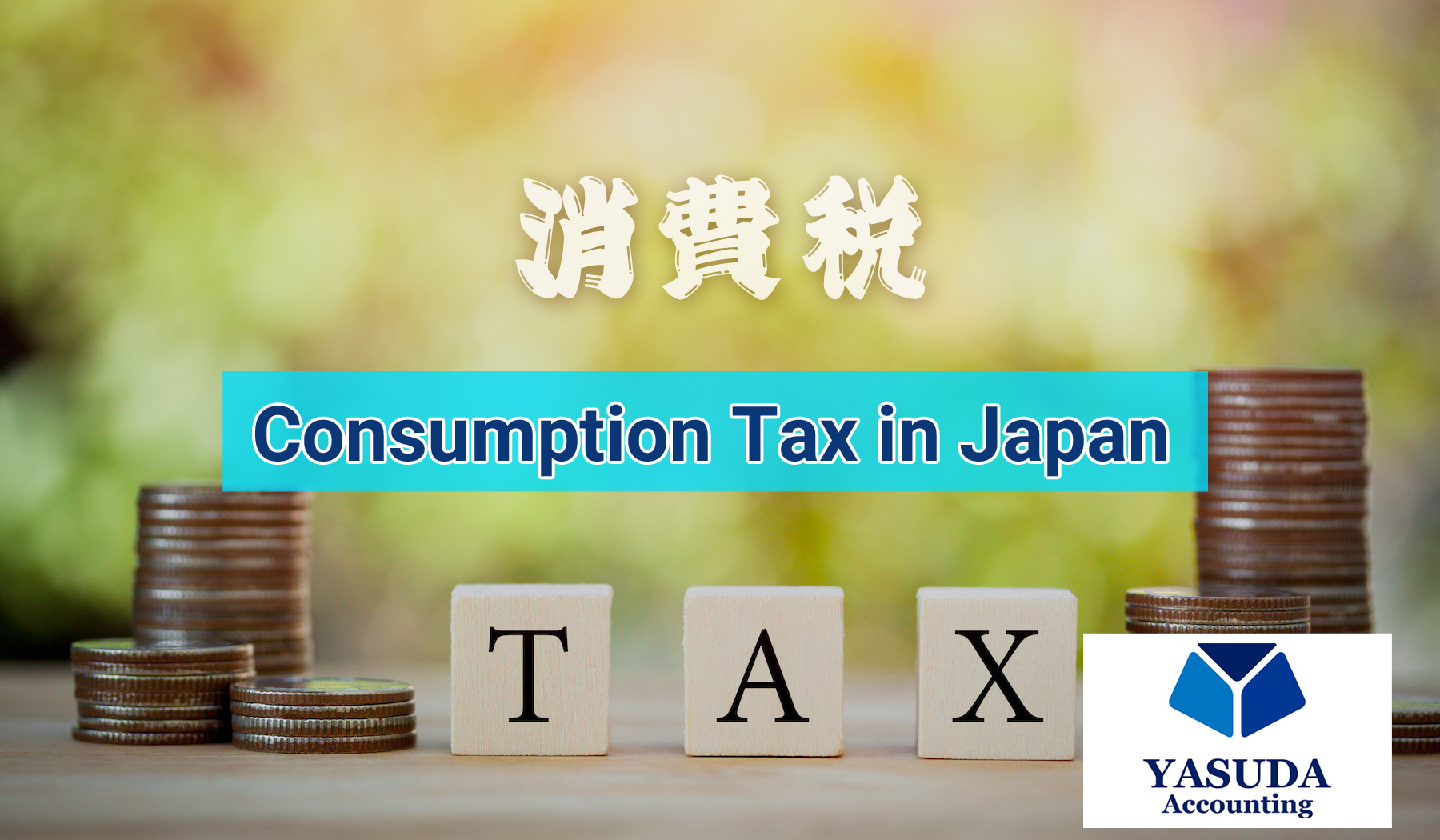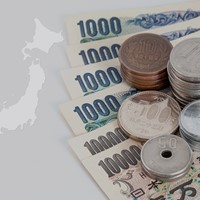What you should know about Consumption Tax in Japan

This article is contributed by YASUDA-Accounting.
What is the Consumption Tax?
The consumption tax is imposed on the transfer of assets, lending of assets, and provision of services by businesses in Japan, so most transactions such as sales of goods, transportation, and advertising are subject to the consumption tax.
Importation of goods from abroad is also taxed at the time of importation.
Transactions Exempt from Consumption Tax

In principle, when a business sells goods or other items in Japan, it is subject to the consumption tax.
However, if the sale constitutes an export transaction, it is exempt from the consumption tax.
This is based on the idea that the consumption tax, which is a domestic consumption tax, is not imposed on items consumed in foreign countries.
A taxable enterprise is exempt from consumption tax if it conducts the following export transactions, etc.
(1) Transfers or loans of assets made as exports from Japan
(2) Correspondence or postal or letter services between Japan and foreign countries
(3) Assignment or lease of intangible property rights such as mining rights, industrial property rights, copyrights, and business rights to a non-resident
(4) Provision of services to a non-resident
However, even the provision of services to a non-resident does not constitute an export transaction that is exempt from taxation, and consumption tax may be imposed.
Non-taxable Transactions
The following transactions are non-taxable due to the nature of the consumption tax and social policy considerations.
1. Transfer or lease of land etc.
2. Transfer of securities, means of payment, etc.
3. Interest, guarantee fees, insurance premiums, etc.
4. Transfers of postage stamps, stamps, etc. made at specific places.
5. Transfer of gift certificates, prepaid cards, etc.
6. Administrative fees such as certificate of residence, etc.
7. Foreign exchange, etc.
8. Social insurance medical care, etc.
9. Long-term care insurance services, social welfare services, etc.
10. Childbirth expenses, etc.
11. Burial and cremation fees
12. Transfer or loan of certain handicapped goods, etc.
13. Tuition, admission fee, entrance examination fee, facility and equipment fee, etc. for certain schools.
14. Transfer of books for teaching purposes.
15. Loan of housing.
Consumption Tax Rate
In Japan, the consumption tax rate is generally 10% as of 2023, but some foodstuffs, newspapers, books, and pharmaceuticals are subject to a reduced tax rate.
Businesses Exempt from Consumption Tax

Under the consumption tax, businesses with taxable sales of 10 million yen or less in the base period of the taxable period are exempt from tax liability for the transfer of taxable assets in that taxable period.
Even if taxable sales in the base period of the taxable period are 10 million yen or less, if taxable sales in the specified period exceed 10 million yen, the business will become a taxable enterprise from that taxable period. In addition, instead of the amount of taxable sales, the total amount of salaries and wages paid may be used to determine the amount of 10 million yen for the specified period.
Consumption Tax Filing and Payment Deadlines
The due dates for tax returns and tax payments are as follows.
Individual business tax returns: March 31.
Corporate tax returns: Within 2 months from the day following the end of the fiscal year.
If the taxable period has been shortened: Within 2 months after the end of each shortened taxable period.
In principle, the taxable period for consumption tax is one year, but as a special exception, the taxable period may be shortened to three months or one month at the option of the business. Businesses with large export refunds may choose to shorten the taxable period in order to receive their refunds earlier.
Consumption Tax Filing Obligations of Foreign Companies
It is not only Japanese businesses that are obliged to file and pay Japanese consumption tax. If a foreign company engages in transactions subject to consumption tax and does not meet the requirements of a tax-exempt business, it will be obliged to file a consumption tax filing.
Typical cases in which foreign companies are obliged to file consumption tax returns in Japan include the Provision of electronic services and sales of goods transactions in Japan.
Consumption Tax Invoice System in Japan
In Japan, a consumption tax invoice system is scheduled to be introduced on October 1, 2023. Japan’s consumption tax is a value-added tax, but currently it is not based on the so-called invoice method, but on the bookkeeping method.
An important point of the new invoice system is that the buyer cannot deduct tax on purchases unless it obtains a qualified invoice that meets the requirements, and only registered businesses can issue a qualified invoice.
Registered Businesses Cannot be Tax Exempt

It is possible for a tax-exempt business entity to register as a qualified invoicing business entity, but in this case, the business entity is assumed to be subject to consumption tax, so once registered, it is no longer a tax-exempt business entity and its consumption tax burden will increase.
From the perspective of a business entity that purchases from a tax-exempt business entity, it is not possible to receive a qualified invoice and therefore cannot claim the purchase tax credit for that transaction. In other words, the burden of the consumption tax equivalent of the transaction will increase.
Due to this situation, it is expected that a transaction partner will pressure the tax-exempt business to register as a qualified invoicing business entity, or in some cases, change the supplier to a registered business entity.
Therefore, tax-exempt business entities should comprehensively consider whether to register, not only for their own tax advantages, but also in relation to their business partners.
Please Contact Experts for More Information
While the above overview is useful enough, the actual calculation of the tax amount and filling out the tax return is much more complicated. We recommend that you consult with a specialist if necessary. YASUDA-Accounting has extensive experience in providing accounting and tax services to foreign companies and foreign nationals, as well as English-language services. Please feel free to contact us for more information.
















